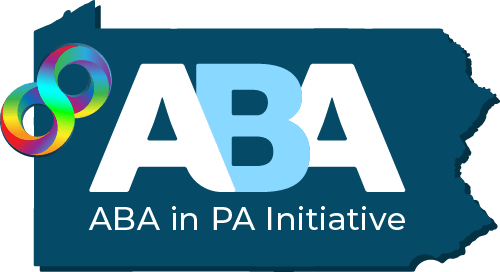ABA in PA Initiative
News | Articles | Tips | Resources | Advocacy | Events
TIP: Wandering
Author: Stephanie Miodus, a PhD student in School Psychology at Temple University who is also pursuing an ABA Graduate Certificate.
#tip #wandering #safety #elopement
Stephanie writes…
“When a child wanders off, or elopes, when walking outside, it is a terrifying experience for parents and guardians and a serious safety concern for the child. While the dangers of a child wandering off are worrisome in general, they are especially concerning for any children with autism who are non-vocal where it would be difficult for the child to provide any identifying information if someone were to try to assist the child in finding their way home.
It is important for families to have plans in place, such as your child wearing a bracelet ID, if unfortunately this does occur, but it is also important that walking goals to be in place ahead of time to decrease the likelihood of your child wandering off while walking.
First, there should be an understanding of the function (or the “why”) of wandering off. You child may not like a noise in the area and be trying to run away from it, or your child may want to be near the water and run to a nearby pond. This “why” can be assessed using an FBA (functional behavior assessment). Then based on this information, walking goals can be established by focusing in on addressing this “why.” For example, for the child trying to avoid a loud noise, a goal could be a child successfully walking by their parent’s side in an area far from the noise.
In the case of the child who wanted to enjoy the water, alternative ways to visit the pond should be provided, such as having the child remain within a few feet of their guardian when walking and reinforcing (rewarding) this with trips to the pond, or teaching the child a signal to request a special trip to the pond. When writing and implementing these goals, it is important that all involved focus on your child’s safety at the forefront of reducing and hopefully eliminating wandering off behavior.”
Learn how you can help
There are many ways in which you may participate and help advocate for improving the access and quality of ABA including: volunteering, legislative advocacy, sharing upcoming events, news, articles or by donating to support our mission. Please contact us below with any questions, requests or corrections.

All members of this Initiative are expected to contribute to a respectful, welcoming and inclusive environment for every other member. We are committed to creating an environment which is free from intolerance directed toward individuals or groups and strives to create and maintain an environment that fosters respect for others. To submit a conduct violation please contact us.
The ABA in PA Initiative is committed to equal access to programs, facilities, admission and employment for all persons. It is the policy of this Initiative to maintain an environment free of harassment and free of discrimination against any person because of age, race, color, ancestry, national origin, religion, creed, service in the uniformed services (as defined in state and federal law), veteran status, sex, sexual orientation, marital or family status, pregnancy, pregnancy-related conditions, physical or mental disability, gender, perceived gender, gender identity, genetic information or political ideas.
Discriminatory conduct and harassment, as well as sexual misconduct and relationship violence, violates the dignity of individuals, impedes the realization of the Initiative’s mission, and will not be tolerated.
ABA in PA Initiative
The ABAinPA Initiative is an advocacy organization made up of individuals, families, industry professionals, lawmakers and others dedicated to improving the future for those in Pennsylvania by ensuring access to Applied Behavior Analysis (ABA) therapy.